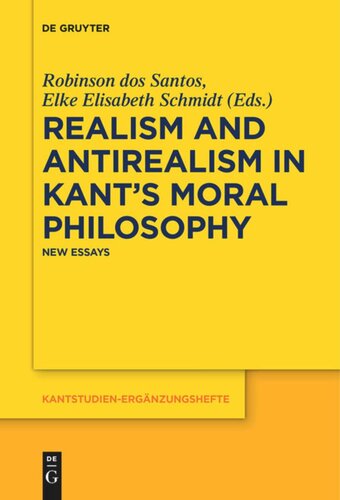

Most ebook files are in PDF format, so you can easily read them using various software such as Foxit Reader or directly on the Google Chrome browser.
Some ebook files are released by publishers in other formats such as .awz, .mobi, .epub, .fb2, etc. You may need to install specific software to read these formats on mobile/PC, such as Calibre.
Please read the tutorial at this link: https://ebookbell.com/faq
We offer FREE conversion to the popular formats you request; however, this may take some time. Therefore, right after payment, please email us, and we will try to provide the service as quickly as possible.
For some exceptional file formats or broken links (if any), please refrain from opening any disputes. Instead, email us first, and we will try to assist within a maximum of 6 hours.
EbookBell Team

4.3
38 reviewsThe debate between moral realism and antirealism plays an important role in contemporary metaethics as well as in the interpretation of Kant’s moral philosophy. This volume aims to clarify whether, and in what sense, Kant is a moral realist, an antirealist, or something in-between.
Based on an explication of the key metaethical terms, internationally recognized Kant scholars discuss the question of how Kant’s moral philosophy should be understood in this regard. All camps in the metaethical field have their inhabitants: Some contributors read Kant’s philosophy in terms of a more or less robust moral realism, objectivism, or idealism, and some of them take it to be a version of constructivism, constitutionism, or brute antirealism.
In any case, all authors introduce and defend their terminology in a clear manner and argue thoughtfully and refreshingly for their positions.
With contributions of Stefano Bacin, Jochen Bojanowski, Christoph Horn, Patrick Kain, Lara Ostaric, Fred Rauscher, Oliver Sensen, Elke Schmidt, Dieter Schönecker, and Melissa Zinkin.